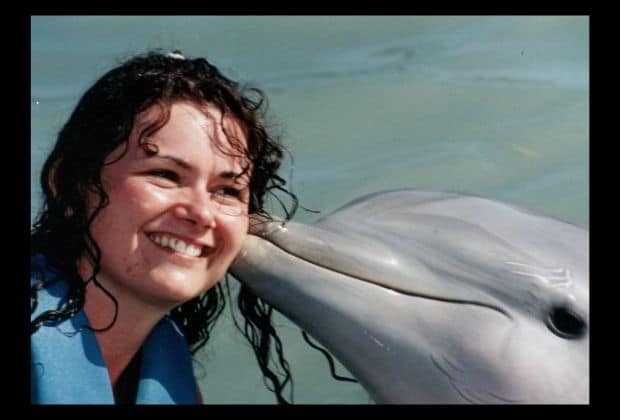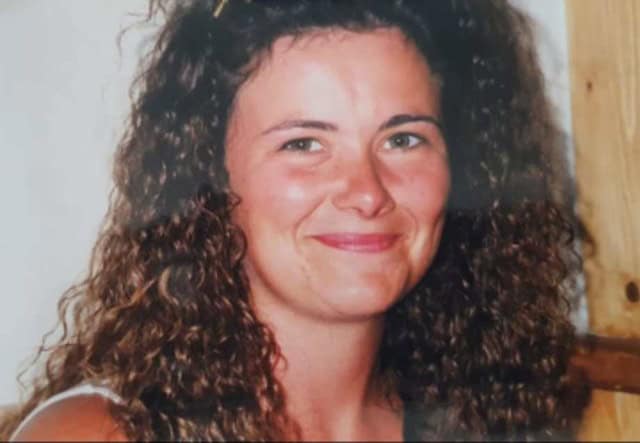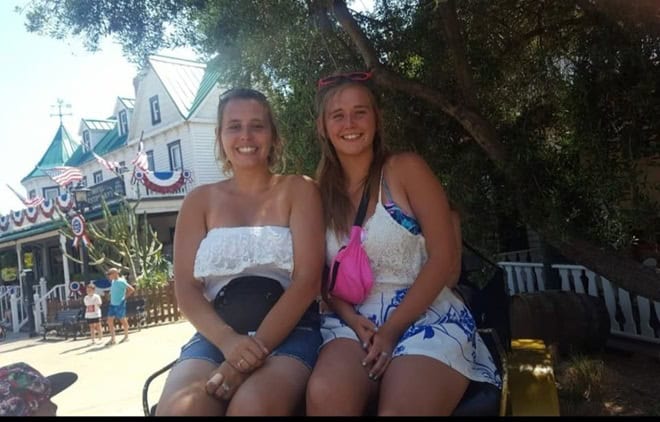
Changes to mental health services in Thanet are urgently needed, say the devastated family of a Ramsgate mum who took her life on what counsel raised as a series of failings to help her.
Tara Wakefield was a caring, bubbly and fun person, who laughed easily and loved animals, especially dolphins and gorillas. She loved her family, who were her world.
Tragically, she took her life aged just 51, after previous suicide attempts and a failure by professionals to provide her with adequate help. Her body was found at Margate cemetery on September 14, 2022.
Less than one month earlier, on August 20, the mum-of -three was found by emergency services by the edge of a cliff, unresponsive, having taken an overdose. She was admitted to QEQM hospital. Her paracetamol levels were toxic, and treatment was commenced to prevent liver damage.
Tara reported to hospital staff that she had intended to end her life. She attempted to leave the ward and was threatened with detention under the Mental Health Act. She subsequently agreed to stay as a voluntary patient.
Tara had self-harm and suicide attempts over several years, having struggled with her mental health since the death of her father David in February 2018.
While on the inpatient ward she was assessed by the Liaison Psychiatry Service run by Kent and Medway NHS Social Care Partnership Trust (KMPT) and initially assessed as a high risk to self.

But on September 1, 2022, Tara’s final assessment by KMPT was carried out by mental health nurse, Patricia Longman, who downgraded her risk level to low and discharged Tara to her GP with no community follow up.
Counsel Stephen Clark of Garden Court Chambers and Solicitor Khariya Ali of Bindmans LLP, acting for Tara’s family, say this was despite concerns being expressed by the ward staff about this proposed plan of action. Two weeks later Tara took her life.
Tara’s son Tommy said: “Devastated – this word captures how my family, friends and I felt, along with the families and loved ones who also lost someone due to the decisions made by the KMPT Team at Queen Elizabeth The Queen Mother Hospital.
“A change is not only wanted but urgently needed to ensure the safety of all future vulnerable citizens who are facing difficult times, seeking help, and relying on the KMPT Team at QEQM to decide their fate.”
Failings raised at Tara’s inquest
An inquest was held before HM Assistant Coroner Catherine Wood earlier this year. Family representation say this hearing identified failings relating to Tara’s care, including a failure to appropriately consider and take into account documentation from Tara’s family, a failure to refer Tara to the community or home treatment team, and a failure by various bodies to coordinate between themselves and take responsibility for Tara’s care.
However, the coroner did not consider she had sufficient evidence to conclude these were causative of Tara’s death and recorded cause of death as: “a consequence of her own actions on a background of epilepsy and depression whilst awaiting alternative accommodation to help support her complex medical and psychosocial needs.”
Failings by Kent and Medway NHS Social Care Partnership Trust (KMPT) were raised and some changes to processes have since been implemented.
In the final years of her life, Tara grew increasingly paranoid about her living conditions, and expressed fears to friends and family that people were breaking into her home, tampering with her food and drink, and drugging her.
She began self-neglecting – afraid to cook, or to eat food stored in the house in case it had been tampered with. Her family’s concerns about her deteriorating living conditions, her paranoia and her repeated attempts to self-harm, reached the stage where, following an attempt by Tara to take a “huge overdose” and cut her wrists in February 2021, they tried to seek additional mental health support and asked for her to be sectioned.

Despite these concerns, Tara was discharged from Priority House with her family advised that she “just needed fresh air”. Tara’s self-harm and suicide attempts continued thereafter and escalated.
The inquest also heard that while Tara was an inpatient following the overdose in August 2022, her family provided a folder of evidence -which included previous suicide notes from Tara, photographs of her living conditions, and screenshots of messages showing her paranoid ideation- and sked that this material be provided to the psychiatric team assessing Tara.
Dr Chapman, the junior doctor on Tara’s ward, confirmed in oral evidence that he showed this folder to consultant psychiatrist Dr Mondeh before his assessment of Tara. Dr Mondeh, however, denied that this happened, though his evidence in this regard was ultimately not accepted by the Coroner at the inquest.
Dr Mondeh also provided his own version of his notes of his assessment of Tara which did not match those previously provided by KMPT and after saying Tara’s problems were neurological, told the inquest he did not need neurology input instead presenting a document he had “got from the internet.”
Final assessment and no support
The inquest also heard the circumstances of Tara’s death had been subject to a Root Cause Analysis (RCA) investigation conducted by KMPT.
This investigation concluded Tara should not have been discharged without any follow up, and she should have been discussed within a multi-disciplinary team (MDT) environment.
At the inquest Ms Longman maintained her action to downgrade Tara’s risk of self-harm to low and discharge her from hospital with no support was appropriate, and reported having no knowledge of the findings of the RCA investigation.
Tara’s family have since raised the similarities of how Gabriel Farmer, from Broadstairs, was assessed after he was admitted following a suicide attempt. He was deemed low risk and discharged. Little more than a week later, on May 14 last year, the 23-year-old took a fatal amount of cocaine to end his life.
Kent County Council failings
Failings raised at the inquest included inappropriate behaviour by a Kent County Council social worker when nan-of-two Tara was trying to be moved to Copperfield residential home.
The inquest heard evidence that Tara believed she would be able to access appropriate support at Copperfield. In November 2021, Tara’s Kent County Council (KCC) social worker presented a case for her to be housed at the home at a panel. However, the application was incomplete and included inaccurate information regarding Tara’s needs, including detailing that she required injections of medication during seizures.
Copperfield refused to rehouse Tara there due to concerns about keeping her safe. KCC was invited to re-submit the case with further information. This was never done.
In the course of the inquest, it emerged that KCC had failed to disclose details of a complaint lodged by Tara in respect of her social worker, these documents were provided by another inquest witness. The complaint included allegations that Tara’s social worker had on various occasions:
- Dismissed Tara’s expressions of distress, telling her “just stop crying” and to “pray then”
- Responded to Tara’s fears about losing her life by telling her that “my God will not let you die”
- Told Tara that a woman in her position “should be grateful just to move anywhere” and her case was not as important as others she was supporting
The social worker did not give evidence at the inquest. Her manager, however, acknowledged this conduct was not appropriate. The family still have not received any explanation as to why these records were not disclosed by KCC.
A Kent County Council (KCC) spokesperson said: “We would like to express our sincere condolences to the family and friends of Tara Wakefield.
“KCC worked with the coroner in relation to the inquiry into the very sad death of Ms. Wakefield and the learning outcomes that were identified through this will be taken forward by the council to inform future service delivery.”
‘Extremely painful’

Tara’s daughter Trudie Belsey said: “Watching mum’s declining mental health in the last few years of her life was extremely painful for our family. One of the hardest parts was that we as a family could see she was struggling, and needed professional help, but we didn’t know how to get her the help she needed. Too often, it felt that we were not taken seriously when we raised our concerns with professionals.
“Sitting through the evidence in mum’s inquest was hugely difficult and distressing for our family, but it seemed to me throughout that, with few exceptions, there had been a culture of professionals and organisations all hoping one another would do something rather than taking proactive steps to protect an extremely vulnerable woman.
“All we can hope is that lessons have been learnt from what happened to mum, so no other family has to deal with their loved one falling through the cracks of a failing mental health system again but I am not confident that this is the case.
“I was particularly concerned to see, only weeks after mum’s inquest had concluded, the case of Gabriel Farmer which has so many parallels with mum’s case. Like mum, he was admitted to the QEQM after a suicide attempt in the context of a history of mental health issues and previous suicide attempts. Like mum he was assessed as low risk by the same nurse, Patricia Longman, and was discharged from hospital. And like mum, he sadly died shortly afterwards.”
Tara’s other daughter Libby added: “How could they of deemed her low risk with a history of suicide attempts that had become more serious and more frequent? Something needs to change.”
Libby is urging anyone whose family has gone through a similar experience to reach out to her via messenger
‘Learning lessons’
A Kent and Medway NHS and Social Care Partnership Trust spokesperson said: “We continue to offer our heartfelt condolences to Tara’s friends and family. We are very sorry that her family feel they were not listened to.
“It is very important to us that families are fully involved in the treatment of their loved ones, and we have redesigned the way we undertake risk assessments and create patients’ safety plans to better involve them going forwards.
“The safety of those we care for is our utmost priority and we are committed to continually learning lessons to improve how we do this. Last year we worked with patients to implement a new, trust-wide, suicide prevention approach, which sets out new ways of assessing risk. This includes training staff on a new therapeutic model that evidence shows is very effective at reducing suicidal thoughts, and better supports people who are distressed and their families.”
KMPT says further improvements have been made, including:
- Mental health practitioners working in hospital emergency departments take part in multi-disciplinary team meetings twice a day, to ensure all specialisms are involved in decisions around patients’ care.
- We have improved our induction processes so staff better understand how to access multi-disciplinary team support, especially out of hours.
- We have also introduced new processes so that outcomes from investigations or inquests are routinely shared in team meetings.
- Last year we launched a new suicide prevention approach and as part of this are revising the internal clinical risk assessments we undertake, as well as the training provided to help staff better support distressed service users and their families. It has been co-produced with people with lived experience, and carers, whose invaluable insight help us make sure the needs of our service users are at the heart of our clinical interventions and staff engagement.
- We are also training staff on a new therapeutic model (called Collaborative Assessment and Management of Suicide Prevention) that evidence shows is very effective at reducing suicide thoughts and attempts.

Gabriel Farmer’s mum Louise Knight has also previously spoken about how she fought to get her son help for depression and anxiety but struggled to access to professional services.
Louise wants to set up the Angel Gabriel Charity, determined to help others and make sure no family has to endure the pain of losing a loved one to suicide.
The aim of the charity will be to help people pay for private healthcare and therapy so they get help and support immediately, when they need it, and not have to wait for weeks to get an appointment.
Find details of local mental health support provision here
Tara’s family were represented at the inquest Counsel Stephen Clark of Garden Court Chambers and Solicitor Khariya Ali of Bindmans LLP.
Kent County Council has been asked for a response to the failures raised at Tara’s inquest and this will be added when it is received.

